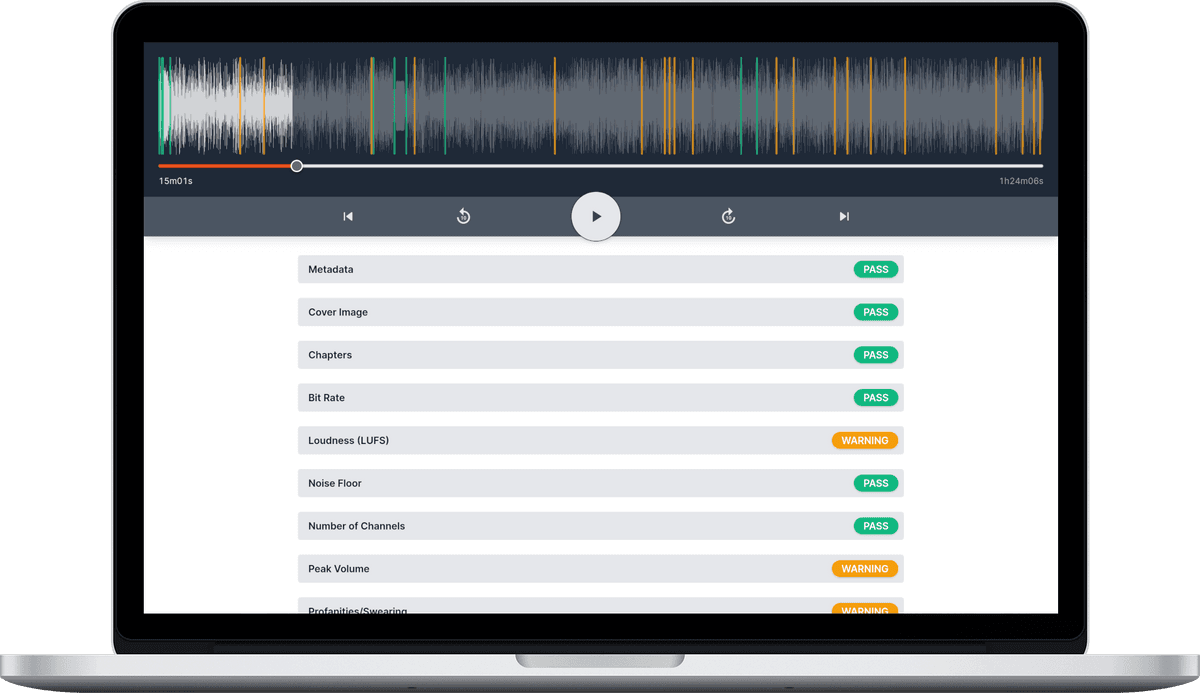How to Deal with Burnout as a Podcaster
![]() Damian Moore, Last updated: 7 March 2023
Damian Moore, Last updated: 7 March 2023
As a podcaster, you may know the feeling of being overwhelmed and burned out. You’re trying to produce high-quality content on a regular schedule, engage with your audience, and grow your show. All of this can be exhausting, and it’s easy to feel like you’re constantly chasing your tail.
But burnout doesn’t have to be inevitable. With the right tools and strategies, you can manage your workload, reduce your stress levels, and keep your passion for podcasting alive. Here are some tips on how to deal with burnout as a podcaster, including automation, workflows, and seasonal breaks.
Automate repetitive tasks
One of the biggest time-sucks in podcasting is the repetitive tasks that come with producing and promoting each episode. But many of these tasks can be automated, freeing up your time and energy for more creative work.
For example, you can automate social media promotion using tools like Hootsuite or Buffer. Simply schedule your posts in advance and let the software do the work for you. You can also use AI to transcribe your episodes and generate show notes. If you’re editing your own episodes, consider outsourcing. There are many freelancers on platforms like Upwork and Fiverr who can help and you can still preview the work before publishing.
By automating repetitive tasks, you can reduce your workload and save time and energy for the parts of podcasting that you enjoy the most.
Streamline your workflows
Another way to reduce your workload and prevent burnout is to streamline your workflows. Workflows are the series of steps you take to produce and promote each episode of your podcast. By identifying and eliminating unnecessary steps, you can reduce your workload and make the process more efficient.
For example, you might find that you spend a lot of time researching topics for each episode. To streamline this process, you could create a list of potential topics in advance, or invite guest and listeners to suggest topics for you.
Another way to streamline your workflows is to use project management software like Trello or Asana. These tools can help you keep track of your tasks, collaborate with team members, and stay on top of deadlines.
By streamlining your workflows, you can make the podcast production process more efficient and reduce the risk of burnout.
Batching Similar Tasks Together
One strategy for increasing efficiency and reducing burnout is to batch similar tasks together. For example, you might set aside one day a week to record all of your interviews or record multiple episodes in one sitting. This can help you get into a rhythm and minimize the amount of time you spend transitioning between different tasks. By batching tasks, you can also take advantage of the fact that your brain works best when it’s focused on one type of task for an extended period of time.
Another way to batch tasks is to group similar types of work together. For example, you might schedule all of your social media posts for the week in one sitting or batch all of your editing and post-production work together. By doing this, you can avoid the mental strain of constantly switching between different types of work and give yourself the chance to focus on one thing at a time.
In addition to reducing burnout, batching tasks can also help you work more efficiently and get more done in less time. When you’re focused on one type of task, you can get into a flow state that allows you to work faster and with greater accuracy. By reducing the amount of time you spend on context switching, you can also minimize the cognitive load that comes with constantly switching between different tasks.
Take seasonal breaks
As a podcaster, it’s tempting to try to produce content year-round. But this can lead to burnout and reduced quality. Instead, consider taking seasonal breaks.
Seasonal breaks are periods of time when you take a break from producing new episodes. This could be a few weeks, a month, or even longer. During this time, you can recharge your batteries, focus on other projects, or simply take a vacation.
Taking seasonal breaks can help prevent burnout by giving you time to rest and rejuvenate. It can also help you produce higher-quality content by allowing you to focus on the episodes that matter most. Getting away from the nitty-gritty details can do wonders for your sense of perspective.
Practice self-care
Finally, it’s important to practice self-care to prevent burnout. Self-care means taking care of your physical and mental health, and doing things that make you happy and fulfilled.
As a podcaster, self-care might mean taking breaks throughout the day, getting enough sleep, and taking time to exercise or meditate. It might also mean spending time with family and friends, or pursuing hobbies outside of podcasting.
By practicing self-care, you can reduce your stress levels and prevent burnout. You’ll also be more likely to produce high-quality content and build a loyal audience.
Conclusion
In conclusion, burnout is a common problem for podcasters, but it doesn’t have to be inevitable. By automating repetitive tasks, streamlining your workflows, taking seasonal breaks, and practicing self-care, reduce the amount of time and energy you spend on the administrative side of podcasting and focus on what you love — creating great content. Remember to take care of yourself, and don’t be afraid to take a break when you need it. With the right tools and mindset, you can create a sustainable podcasting practice that will serve you well for years to come.

Photo credits: Stormseeker, Wasil Ahammed

